Chances are, you’ve played the Game of Life.
You’ve selected a small plastic peg (pink for female, blue for male), popped it in one of the four available station wagons, and placed it on the colorful board. You’ve chosen your starting direction—college or career—and off you’ve driven, spinning the whirring, ticking wheel and faithfully following the path. Collecting paydays, halting for marriage and the requisite spousal peg, adding baby pegs to your car as landing spaces dictate. Buying houses, hoping to make a profit when you sell. Advancing on the pre-determined path toward retirement, always with an eye to amassing as much wealth as possible along the way; that, after all, is how you win at the Game of Life.
Maybe you drive that path without questioning. Or maybe you wonder, every time: Why do I have to get married? Shouldn’t there be more forks in the road? Can I invent my own career path? What if winning wasn’t tied to wealth?
Growing up, Maddie Hurley ’24 loved playing the Game of Life with her two brothers or with a babysitter. A kid with a big imagination, Hurley’s play often centered around stories—narrating Barbie’s life, developing family dramas through playing house and reading books.
“I think I liked this board game specifically because it has that imaginative aspect,” Hurley said. “I could pretend I was a person with this home, or doing this career, and play out this made-up scenario.”
For the most part, she didn’t question the game too much as a child.
“I remember there were times, though, where I was like, ‘I don’t want to get married,’” Hurley said. “Or times where I would land on a square or draw a card that would tell me I had a boy or a girl, and I would be like, ‘I don’t want any boys. I only want girls,’ or I wouldn’t want to use a pink peg. I didn’t want to be a boy, but I wanted the color blue. I also remember wanting the highest-paid career so I could buy the most stuff and retire to the nicest place at the end; I always wanted to be the lawyer.”
Hurley found herself reflecting on what lessons she might have unknowingly absorbed from the Game of Life’s proscribed path and limited options during a junior-year women, gender and sexuality (WGS) seminar, WGS 390: Feminist and Queer Inquiries, with Assistant Professor of Art History and WGS Anne Marie Butler.
One text from the class that especially resonated with Hurley, Living a Feminist Life, by Sara Ahmed, explores life paths and happiness, and how society shapes our beliefs about those concepts. An article she came across in her independent research, “That Wasn’t Very Free Thinker” by Kim Hackford-Peer, relates a story of the author attending her son’s elementary school assembly. To show how the letter Q is always paired with U, second grade students acted out marriage between the quarterbacks and the queens.


“Although it’s an innocent idea and a fun way to help kids learn to spell, it’s so rooted in heteronormativity and gender fatalism,” Hurley said. “Those readings got me thinking about how these life paths have been constructed for me starting at a young age. What did I play? What movies did I watch? That led me to believe I have to get a job, be successful, get married, have kids, and buy a house, or I’m not going to be happy. How did I develop this belief? Where did it come from? Sorting through that reflection and thinking about what I did growing up, I ended up at the Game of Life.”
For her final project for the class, Hurley decided to reconstruct the Game of Life, so it no longer sent the message that there exists one, heteronormative path to happiness. Drawing on scholarly literature, she designed new elements to the game and analyzed the concepts of happiness and heteronormativity as well as the ways systems reinforce the dominant heteronormative narrative.
“Ahmed talks about the Middle English word ‘hap,’ which really means chance,” Hurley said. “You can’t complete certain steps to gain happiness. It’s something that you fall upon—something that just happens.”
So, Hurley included a square on the board that prompts players to draw from an emotion deck that may or may not provide them with a happiness card—the key to winning Hurley’s version—at random. She also introduced more options to many game elements.
“You can choose not to get married or you can choose multiple partners. You could choose to have kids or not have kids. You could get a pet. I included more jobs, like being a janitor or an artist. Instead of buying houses, you could be a traveler. You don’t even have to use a car or a person peg; there could be random player pieces you could choose. I wanted it to be very open-ended.
“I wanted no hierarchy of what is better and what is worse. You can just explore, and no matter which options you choose, you can still win, because everybody has the same opportunity to pull the happiness card.”
Another article the WGS 390 students read, “Punks, Bulldaggers and Welfare Queens: The Radical Potential of Queer Politics” by Cathy Cohen, brought home to Hurley the importance of avoiding a false dichotomy between queerness and heterosexuality. She made the game as inclusive as possible by adding to rather than replacing the traditional path of career, marriage, children, retirement.
“I wanted to make the board more extravagant,” Hurley said. “More pathways, more options. There is not one path to happiness, and we should all question things in our lives—the choices we’ve made, why we made those choices, the impact our experiences have had on our beliefs of life goals, happiness, what it means to be successful. Sara Ahmed wrote something like, ‘To live a feminist life is to question your way of life.’ I loved that, it really stuck with me, and I hope this project could make people question the games they’ve played, the shows they’ve watched, and how those things have influenced them.”
Hurley continues to question and explore her own choices and path. Even as she applied to Ph.D. programs in chemical biology and biochemistry, she asked herself if this was the future she wanted or simply the one she felt was expected.
“As of now, I am going to defer my enrollment a year to the University of Illinois, take a gap year, gain some work experience, and then circle back and see if this is something I want to do,” Hurley said. “I do like science, and I do like school. We’ll see.”
Hurley grew interested in a possible career in research while completing her Senior Integrated Project (SIP), which involved a research experience in a chemical biology lab at the University of Illinois over summer 2023. She has also participated in research at K, in Assistant Professor of Chemistry Blake Tresca’s lab. Other K experiences include studying abroad in Scotland, playing tennis and serving as president of the Food Recovery Network, as well as exploring the WGS offerings.
“Before going into this seminar, I didn’t recognize how heteronormativity is always in the background,” Hurley said. “We as a society don’t process it, because it is normalized, institutionally, through media, in board games. For anyone who deviates from that heteronormative path, there is always a fear of unhappiness, judgment, lack of success. This course and the readings helped me realize how those expectations were socially constructed. How many people have followed that path and are unhappy? It helped me reframe that perspective that heteronormativity tells us what will lead to happiness. You can’t achieve happiness, it’s just something that happens. Sometimes happiness is just there.”
Women’s, Gender and Sexuality Studies Collective Undergraduate Research and Activism e-Conference
Five Kalamazoo College students, including Maddie Hurley ’24, presented their work during the Great Lakes Colleges Association’s Women’s, Gender and Sexuality Studies Collective undergraduate research and activism e-conference on March 28–29.
Anne Marie Butler, Kalamazoo College assistant professor of art history and women, gender and sexuality (WGS), is a co-convenor of the collective and a conference organizer. Held annually for four years, each conference has included K students. Participation develops professional skills, including public speaking and creating a presentation for an external audience, and offers experience that serves students well whatever their next step may be. The conference also features two professional development panels, one focused on careers and one on graduate school.
“Many students present their senior research or SIP, so it provides a practice run if they have a departmental presentation, and a chance for them to share their work with a wider audience,” Butler said. “Students who attend the conference but don’t present can see the amazing research their peers are doing and will hopefully be inspired to present in a future year. I encouraged all of my students from my spring 2023 junior seminar, as well as my SIP students and other students from my classes to apply, and I was so happy that Maddie was interested, because her project does a great job of applying some of the theory we read in class to create a fun and innovative project.”
A biochemistry major, Hurley had previously participated in a poster session at an undergraduate science research conference. In addition to a different presentation format and a virtual experience, the WGS conference offered a different atmosphere.
“It was more open and flexible, and discussion based,” Hurley said. “It was nice to have a conversation about my project with other students and learn about the research they did, to see that we were all genuinely interested and learn about somebody else’s experience.”
Butler said the conference is for students of all years and majors.
“As long as the project ties into WGS themes in some way, we welcome those presentations,” Butler said. “We love creative, activist and research projects, and we have had projects from areas as diverse as biology, visual art, psychology, music and languages. Maddie is an awesome student. She’s very thoughtful and committed to understanding and working with course materials and makes great connections and applications beyond the materials as well, as seen in her project.”
K students presented the following projects at the conference:
- Ryan Drew ’24, “The Epistemology of Woman: A Poetic Conversation Deconstructing Biology and Language”
- Brynna Garden ’24, “The Influence of Natural Disasters on Violence Against Women”
- Maddie Hurley ’24, “Remaking the Game of Life and Reframing Happiness”
- Dugan Schneider ’24, “Breaking Linguistic Norms: オネエ言葉 (Onē Kotoba) as a Vehicle for Queer Identity Expression in Contemporary Japan”
- Frances Trimble ’24, “(Re)imagining Knowledge Production in Higher Education Through Feminist Pedagogy”


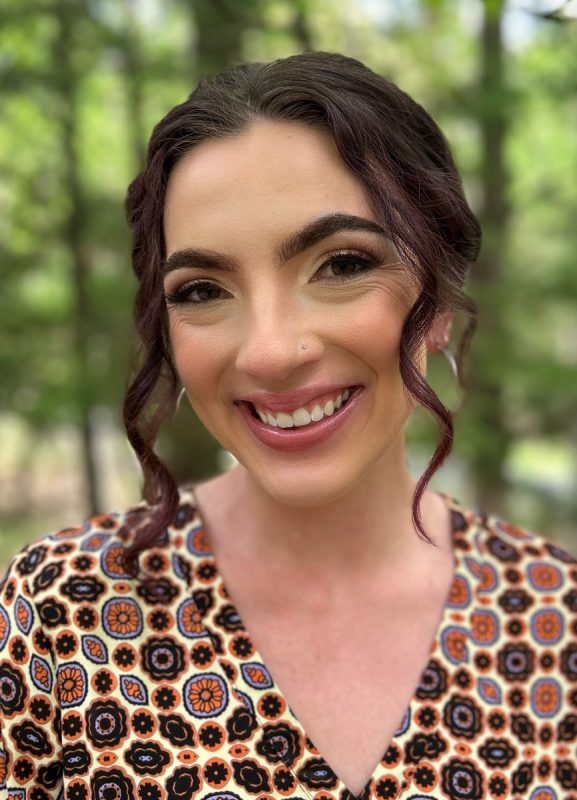
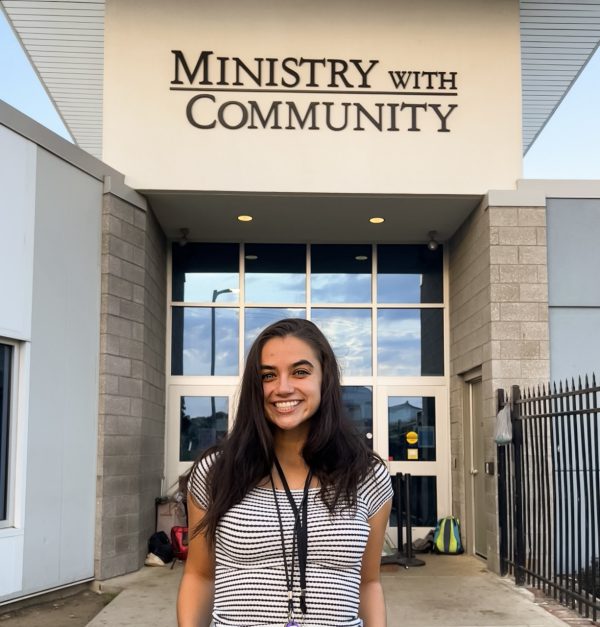
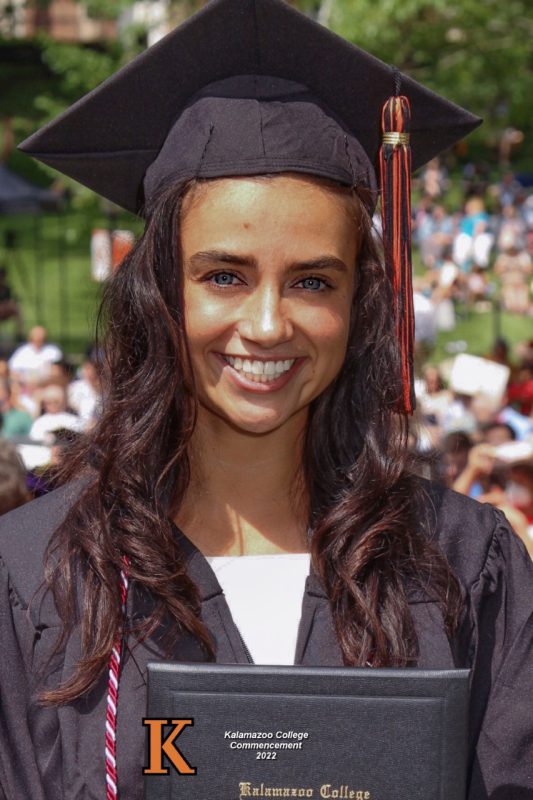
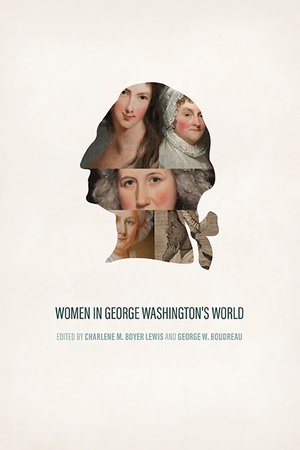
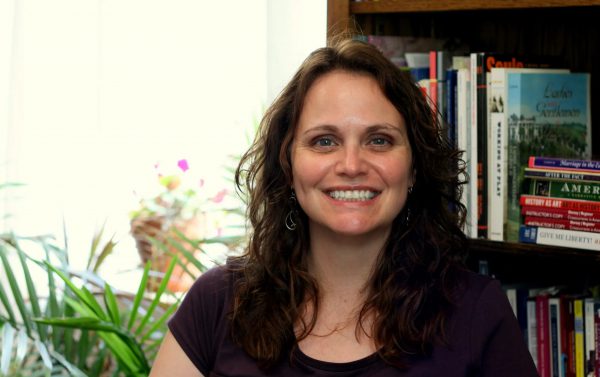
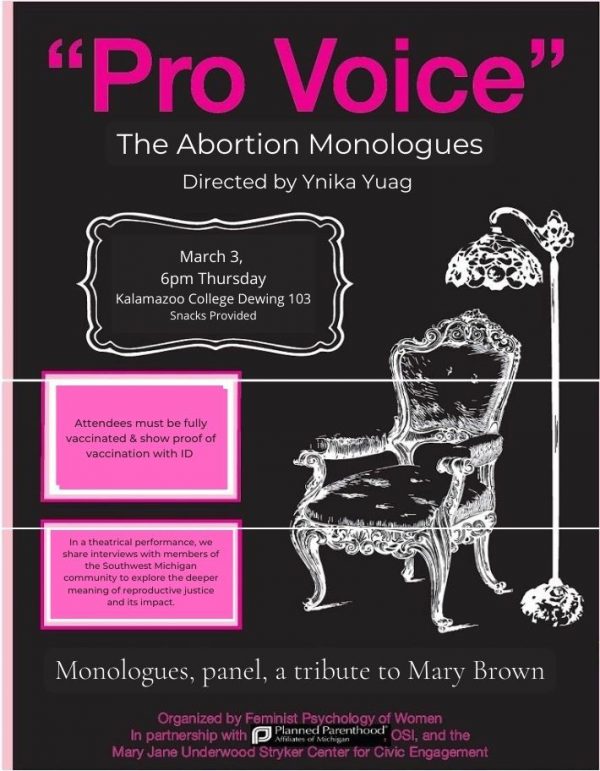






 “Some people are approaching us saying they’d love to buy it for their niece or their daughter, Nsengiyumva said. “We made it to look like a children’s book so it’s appealing to them, but adults can use it as well. We want to inform anyone who’s responsible for fighting the stigma.”
“Some people are approaching us saying they’d love to buy it for their niece or their daughter, Nsengiyumva said. “We made it to look like a children’s book so it’s appealing to them, but adults can use it as well. We want to inform anyone who’s responsible for fighting the stigma.”
